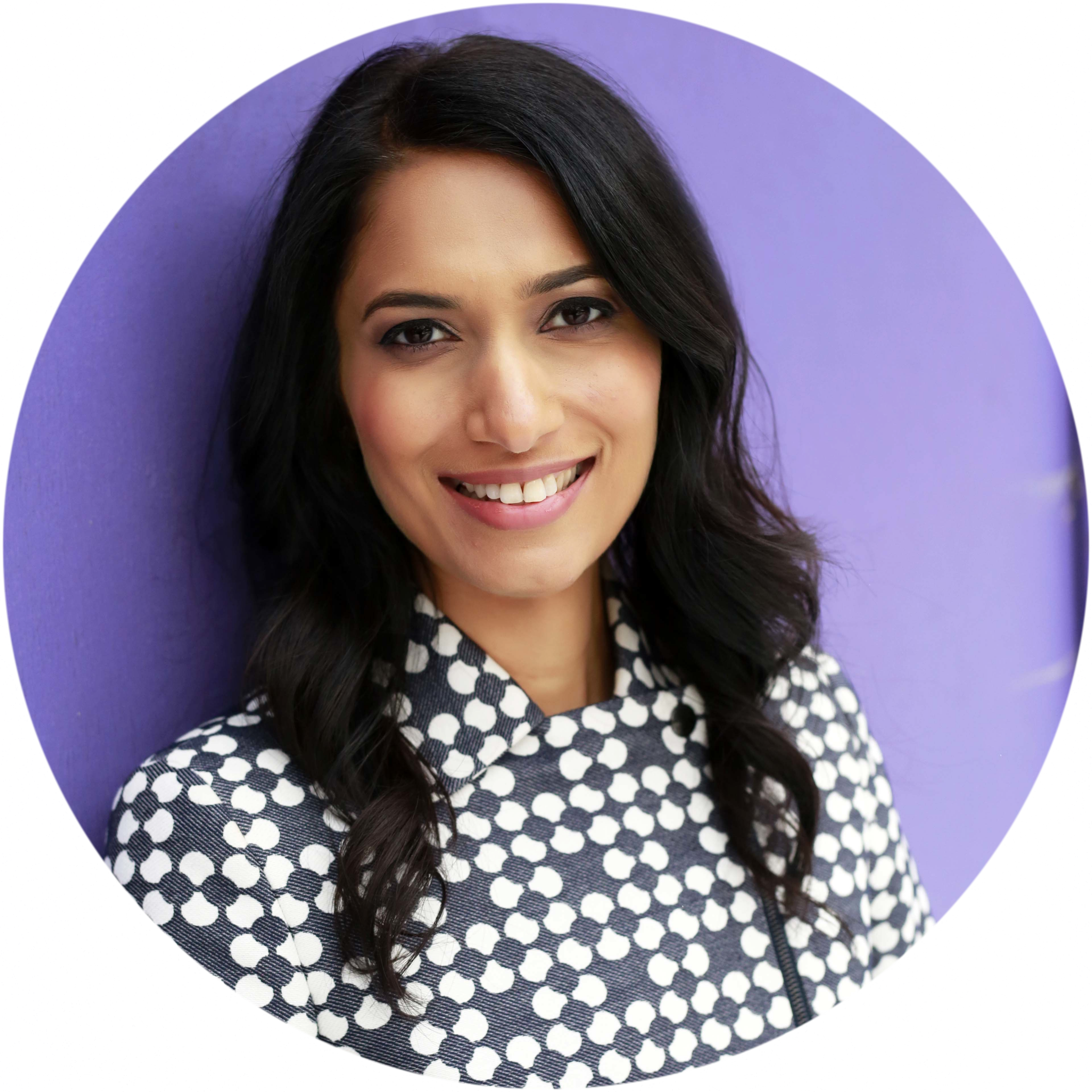speaker q&A: parneet pal, chief science officer, wisdom labs

”I had to learn to advocate for myself, and not limit myself based on others’ opinions. To change old systems, a shift in mindsets and power dynamics at the highest levels of leadership and policy is key.”
PARNEET PAL, CHIEF SCIENCE OFFICER, WISDOM LABS
1. How did you fall into your role at the intersection of lifestyle medicine, technology & behavior change?
I trained as a physician, but quickly realized that all the attention in the medical system was on treating people when they were really sick, with very little focus on prevention. Yet, the data shows that 80-90% of lifestyle-related chronic diseases (which account for 86% of our healthcare costs in the United States, and increasingly globally) are completely preventable when we focus on four aspects of our lifestyle: what we eat, how we move, how much we sleep and how we manage our stress. This inspired me to move away from clinical practice towards the business of wellbeing – how I could help others stay well using lifestyle medicine. I directed and designed lifestyle management programs in academic and business settings. In doing so, I realized that the biggest obstacle to health is not a lack of information, but rather an understanding of how we change our habits and behaviors. I was also interested in scaling these wellbeing efforts – and technology is a huge asset for this purpose. Since most of us spend the majority of our lives at work and around technology, creating healthy workplaces was a natural progression – and for the last six years, I’ve been focused on solving for stress, burnout and loneliness as the Chief Science Officer, Wisdom Labs.
2. In what ways has the focus of your work changed since the beginning of the year, and what can we look forward to seeing from your spheres in the coming months?
The focus of my work hasn’t changed but it has intensified since the beginning of the year. The pandemic has revealed the need for taking better care of our health and wellbeing in a stark manner. This heightened awareness means that individuals and organizations are evaluating what they can do for greater mental, emotional, and social wellbeing. There is greater openness now to adopting healthy lifestyle habits and exploring technology that is supportive. Companies are realizing that they cannot innovate and adapt to the crisis without employee wellbeing. I expect this trend to continue in the coming months.
3. What barriers have you come across in getting to the top of your field?
I grew up in India and was the first generation in my family to go to college. The challenges I faced were related to being on my own (with no network in a new country) and having to figure everything out by myself, as I moved to North America to study and work. Being an immigrant and a woman of color, meant I had to overcome (and still do) certain biases in our culture and society. I had to learn to advocate for myself, and not limit myself based on others’ opinions. To change old systems, a shift in mindsets and power dynamics at the highest levels of leadership and policy is key.
4. Do you have any advice for women trying to jumpstart a new career in tech?
Build and hone your tech skills as much as possible (that’s an ongoing journey and there is always so much to learn) but don’t forget the power of your community and network. Participate, volunteer and give back to your peers as much as you can, and find inspiring mentors along the way – this kind of human connection and support is invaluable.
5. And finally, without giving TOO much away, what can we expect from your session at the Women in IT Virtual Summit, Silicon Valley 2020?
We’re all feeling the effects of the crises around us – greater anxiety, fear and uncertainty about the future. As women in IT, the pressure is even worse in some ways. My session is a masterclass focused on how we can use this challenge to grow through adversity – how we can bounce back better from crisis. I’ll be speaking about an incredible brain superpower we all have that we can train and hone through practice, and the evidence-based ways we can integrate that resilience into our daily lives for better health and wellbeing.

